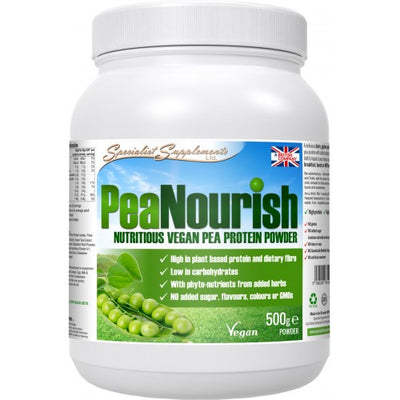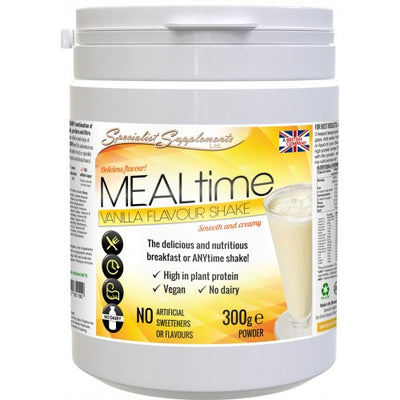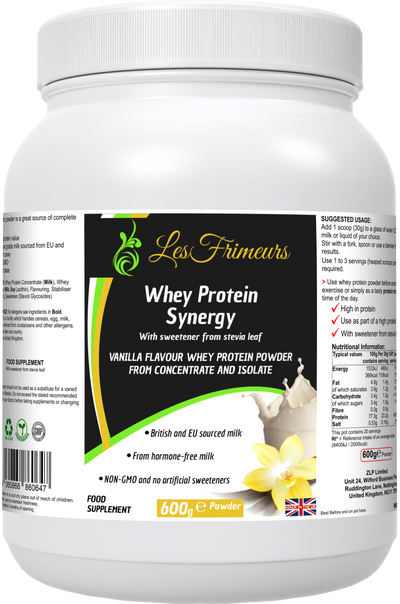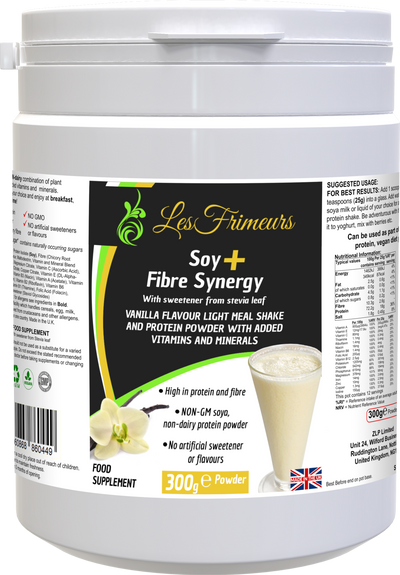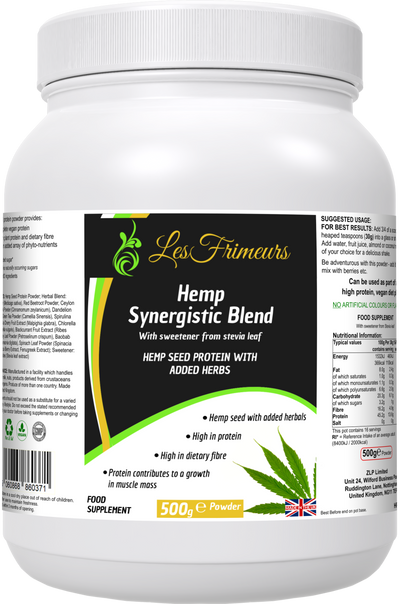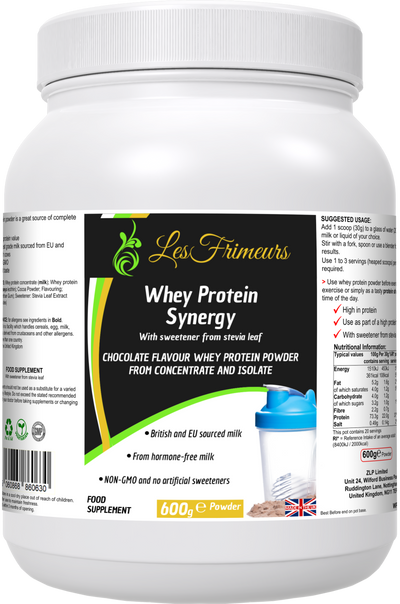PeaNourish
Product summary:
500g powder
PeaNourish is a high quality, high in protein and dietary fibre, vegan pea protein powder (from snap peas), blended with a range of other foods and herbs for added nutritional value. These include chicory root extract, green tea extract, dandelion root powder, spirulina powder and acai berry extract.
Plant protein from snap peas
High protein food (over 72g per 100g)
Complete amino acid profile
With other foods and herbs
High in dietary fibre
Low in carbohydrates
Easily digestible
Non-GMO
No hexane
Hypoallergenic
Dairy-free and gluten-free
No artificial flavours or sweeteners
Suitable for vegetarians and vegans
More information:
More about the ingredients...
Pea protein
This green protein shake mix contains a concentrated level of pea protein, from the 6% found in fresh peas up to around 80%, and is therefore high in protein (over 18g per serving). It is also low in carbohydrates, high in fibre, easily digestible (no bloating), hypo-allergenic and suitable for vegetarians and vegans.
Protein contributes to a growth in muscle mass, the maintenance of muscle mass and the maintenance of normal bones. Click here and here for EFSA scientific opinions.
Amino acid profile
Pea protein is a natural vegetable-source protein, which also offers an excellent amino acid profile. It provides:
- ‘branched chain amino acids’ (leucine, isoleucine and valine)
- lysine (an essential amino acid)
- glutamine (involved in protein synthesis)
- and is richer in arginine than any other commercially available protein.
Nutritional profile
Peas also contain:
- vitamins: including vitamin A, riboflavin, niacin, folate, thiamin, pantothenic acid, pyridoxine, vitamin B6, vitamin C and vitamin K
- minerals: including calcium, iron, zinc, magnesium, phosphorus, copper and manganese
- and other nutrients: including both soluble and insoluble dietary fibre, lutein (a nonprovitamin A carotenoid), phytonutrients / phytosterols (especially ß-sitosterol) and chlorophyll (a green pigment).
What's more, peas are low in fat, calories, sodium and contain no cholesterol.
Easy to digest – no bloating
Pea protein is valued for its high digestibility (90-95%), low potential for allergic responses and reasonable price. It is particularly popular because it has a sweet taste and a texture which mixes well in liquid solutions. It is also useful for mixing into meals, such as soups and stews. Alternatively, it can be blended with liquids of your choice, as well as fruit (like banana) to make a tasty and healthy smoothie.
No 'nasties'
Unlike many other pea protein powders on the market, PeaNourish contains no hexane or other toxic chemicals, which are often used during the pea protein extraction process. Our pea protein is extracted using only water, pressure and then flocculation.
Chicory root (fibre)
Chicory root is rich in a natural vegetable fibre called inulin. Plants like chicory store extra energy in their roots in the form of inulin and other carbohydrates. The inulin in chicory root can be extracted and isolated for use as dietary fibre. The digestive tract doesn’t have the enzymes needed to digest inulin, so it passes through our gastrointestinal tract and into the large intestine intact. There, it serves as nourishment for our microbiota.
Green tea
Camellia thea, or green tea, is a source of catechin polyphenols - Epigallocatechin gallate (EGCG), in particular.
Dandelion root
The roots of the dandelion plant contain a complex carbohydrate called inulin, as well as vitamins (including A, B complex, C and D), minerals (including zinc, calcium, iron and potassium) and compounds called sesquiterpene lactones.
Spirulina
Spirulina is a blue-green microalgae. It contains between 55 and 70% protein (more than beef, chicken, and soybeans), 8 essential and 10 non-essential amino acids, as well as gamma-linolenic acid (GLA), beta-carotene, linoleic acid, arachidonic acid, vitamin K, pantothenic acid, magnesium, potassium, thiamin, riboflavin, niacin, iron, copper, manganese, nucleic acids RNA and DNA, chlorophyll and phycocyanin (a pigment-protein complex that is found only in blue-green algae).
Acai berry
The acai (pronounced ah-sigh-ee) berry is a small, dark purple palm fruit, indigenous to the Amazon rainforest. For hundreds of years, these berries have formed a staple part of the diet of native tribes. As a richly coloured fruit, acai berries naturally contain the purple pigments known as anthocyanins.



